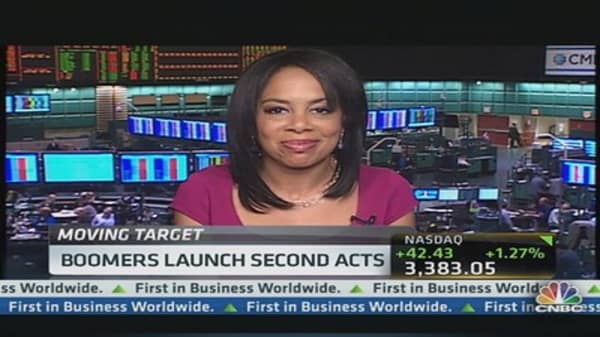The latest monthly jobs report from the Department of Labor shows improvement in the employment picture for Baby Boomers and older Americans, a turnaround that is now looking like a trend.
The share of full-time workers who are 55 years old or older has climbed to 21 percent this year, up from 17 percent in early 2008 and from 12 percent in 2000, according to the U.S. Bureau of Labor Statistics.
The rise in jobs for older workers is partly due to the fact that Boomers are hanging onto their jobs longer, while others are extending their working years by pursuing second careers. Faced with the financial realities of being laid off, living longer, or just living, many boomers want or need to continue working.





